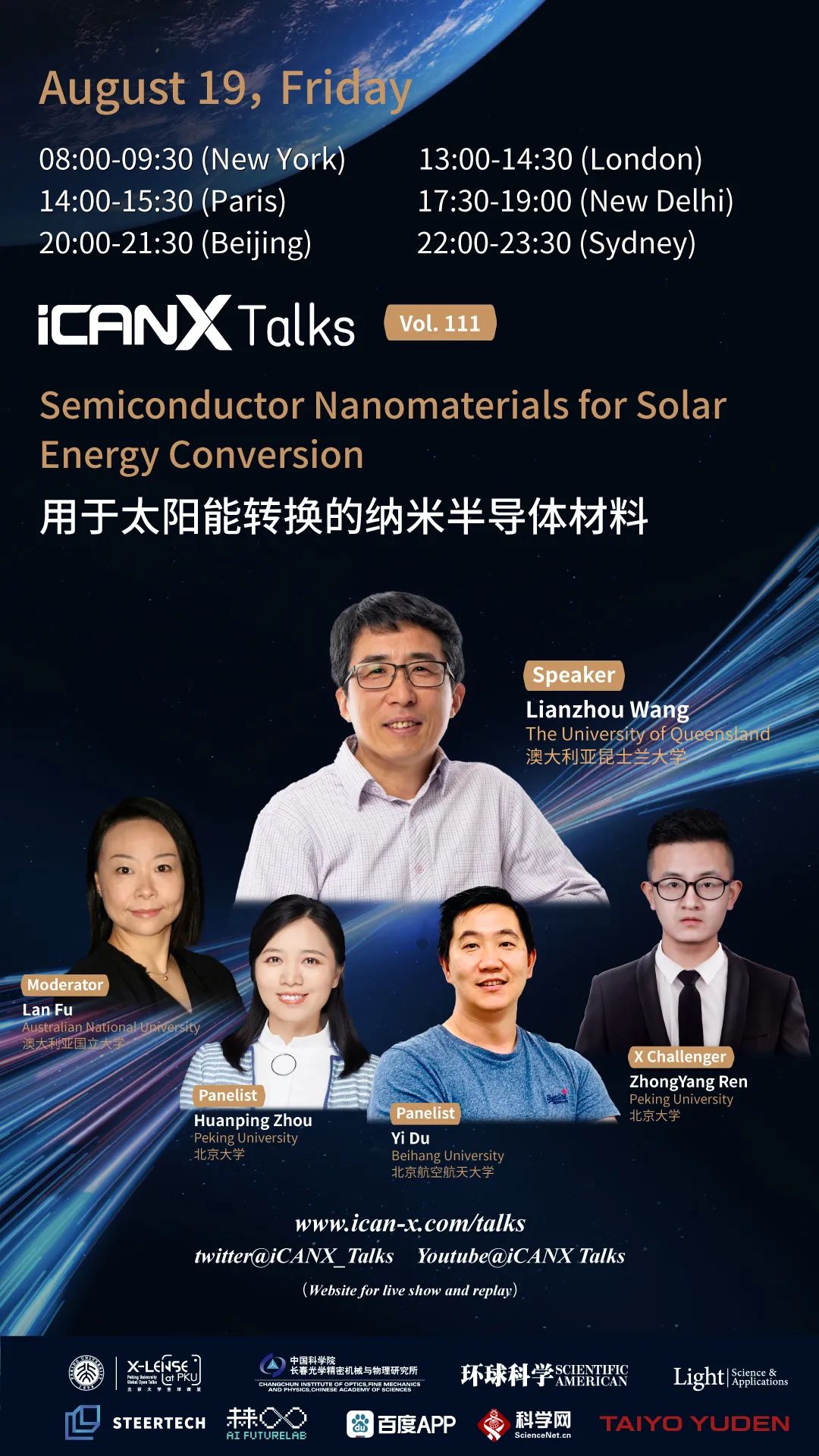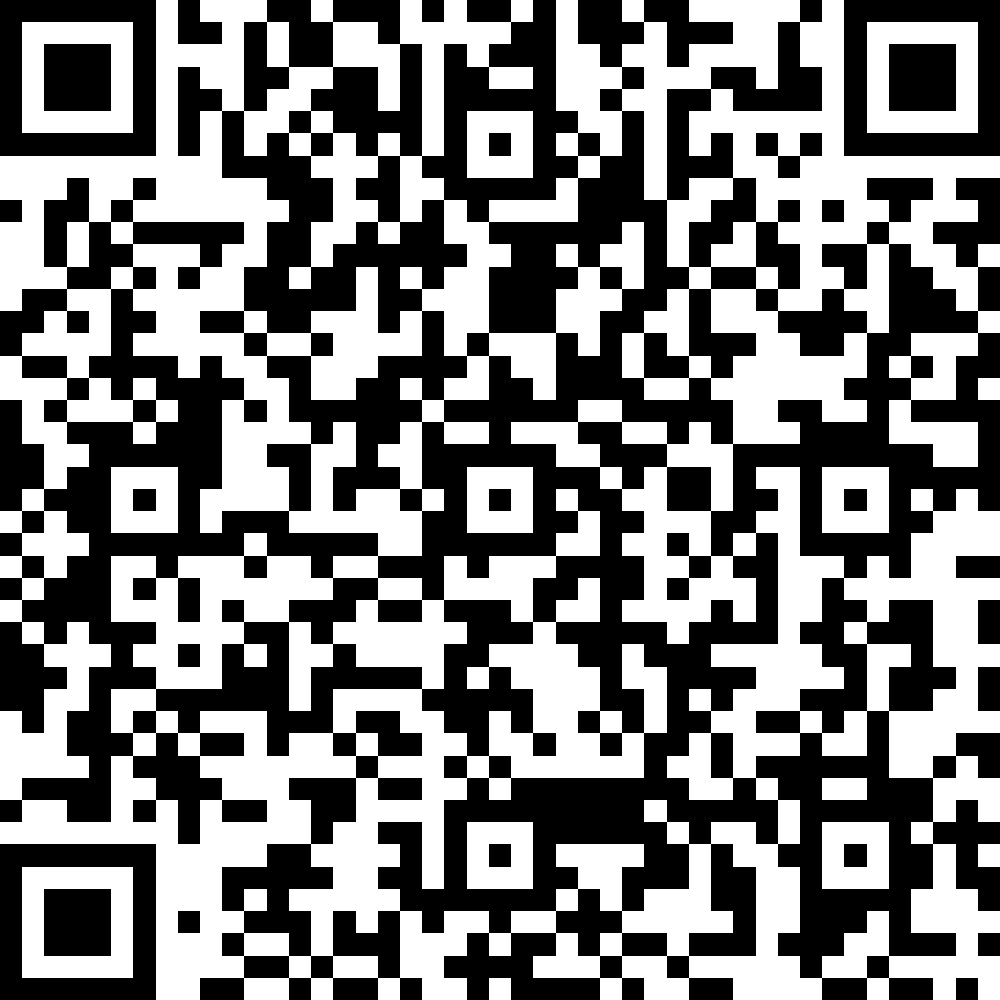[Lecture] Topic: Semiconductor Nanomaterials for Solar Energy Conversion
Aug. 19, 2022
Speaker: Lianzhou Wang, The University of Queensland
Panelist: Huanping Zhou, Peking University
Time: 20:00 pm, August 19, 2022, GMT+8
Venue: iCANX Talks platform
Long press to identify the QR code and jump to the webpage!
Abstract:
Semiconductor materials hold the keys for efficient solar energy harvesting and conversion processes like photocatalysis and photoelectrochemical reactions. In this talk, we will give a brief overview of our recent progress in designing semiconductor nanomaterials for photoelectrochemical energy conversion including solar hydrogen generation and low-cost solar cells. In more details, we have been focusing on a few aspects:
1) photocatalysis mechanism, light harvesting, charge separation and transfer and surface reaction engineering of low-cost metal oxide based semiconductors including TiO2, BiVO4 as efficient photoelectrode for photoelectrochemical hydrogen production;
2) the working mechanism and stability improvement of perovskite quantum dots for both high efficient solar cells and photocatalytic hydrogen production;
3) the design of ultra-stable composites of perovskite-MOF with improved light emitting performance.
The resultant material systems exhibited efficient photocatalytic performance and improved power conversion efficiency in solar cells, which underpin sustainable development of solar-energy conversion application.
Biography:
Lianzhou Wang is Professor and Australian Research Council (ARC) Australian Laureate Fellow in School of Chemical Engineering, Director of Nanomaterials Centre (Nanomac), and Senior Group Leader of Australian Institute for Bioengineering and Nanotechnology (AIBN), The University of Queensland. His research focuses on the synthesis and application of semiconductor nanomaterials for use in renewable energy conversion/storage systems including photocatalytsts for solar hydrogen production, rechargeable batteries and low cost solar cells. In late 2018, his team has broken the certified efficiency world record of quantum dot solar cells, achieving 16.6%. Prof. Wang has contributed more than 500 journal publications (including top ranking journals such as Science, Nature Energy, Angew. Chem., Adv. Mater., J. Am Chem. Soc., etc.), filed 18 patents and delivered over 100 plenary/keynote/invited presentations. His publications have received >38,000 citations with a H-index of 107 (Google Scholar). Prof. Wang is serving as Associate Editor/Editorial Board member of more than six international journals including Advanced Materials. He is named on the list of the Clarivate’ Highly Cited Researchers. Prof. Wang has won a number of Fellowships/awards including ARC QEII Fellowship of 2006, UQ Research Excellence Award of 2008, Scopus Young Researcher Award of 2011, ARC Future Fellowship of 2012, UQ Research Supervision Award of 2018, ARC Australian Laureate Fellowship of 2019, and Research Excellence Award in Chemical Engineering of 2019. He is the elected fellow of Royal Society of Chemistry and Academia Europaea.
Source: iCANX

